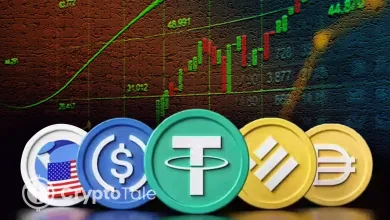Bhutan Mines Bitcoin With Clean Energy and Holds $1.3B BTC

- Bhutan secretly mined 13,000 BTC worth $1.3B, now equal to 40% of its national GDP.
- The nation uses surplus hydropower to run zero-emission Bitcoin mines at six secure sites.
- Following exposure in court filings, Bhutan launched Green Digital for transparency in crypto.
Encompassed by land on all sides and renowned for its solidarity and calmness, Bhutan stands out as a rare blend of tradition and sustainability in a rapidly changing world. Amid global conflicts and economic uncertainty, Bhutan’s Bitcoin mining strategy has garnered global attention.
Beginning in 2020, Bhutan quietly entered the world of Bitcoin mining. Currently, it holds approximately 13,000 BTC, valued at $1.3 billion. This is equivalent to approximately 40% of the national GDP, placing Bhutan in third place, following the U.S. and El Salvador globally. Unlike the others, Bhutan’s holdings are all self-mined and were not taken from the open market or seized by law enforcement actions.
Tourism Fades, Crypto Grows
One of the main reasons for Bhutan to shift its focus toward digital assets was the decline in tourism during the pandemic period. Initially, it utilized locally assembled hardware and small installations near the Dochula Pass. Over time, when international border closures left foreign engineers unable to assist, locals were taught to assemble and maintain ASICs via video calls. By 2022, four state‑backed mines were operational, and by 2025, six secure sites were fixed across the country, powered by hydropower. This setup enabled Bhutan to mine Bitcoin with zero carbon emissions, utilizing excess electricity that would otherwise go to waste.
Although the Kingdom has consistently mined Bitcoins, it has kept the matter under wraps for a long time. The government didn’t officially announce it or share any details, but provided some vague information. The secret came to light in 2023 when two failed crypto companies, BlockFi and Celsius, revealed in court documents that Bhutan’s investment arm, Druk Holding & Investments (DHI), had been involved with them. The revelation sparked scrutiny, with some questioning why such a major economic move had been kept secret and raising concerns about potential risks, given Bitcoin’s price volatility and its significant impact on Bhutan’s economy. In response, the government established a new division, Green Digital, to bring transparency and oversight to its mining operations.
CZ’s Support for Bhutan
More recently, Bhutan’s quiet Bitcoin mining efforts gained global attention when Changpeng Zhao (CZ), the co-founder of Binance, reshared a post from a crypto news account. The original post showed a visual comparison between the world’s largest gold mine in Uzbekistan and the largest Bitcoin mine in Texas. The gold mine looked massive and destructive to the land, while the Bitcoin mine was clean and less invasive.
By adding Bhutan into the conversation, CZ highlighted a key point — not all Bitcoin mining is harmful to the environment. In fact, he reiterated that Bhutan mines Bitcoin using clean and surplus hydropower, unlike many regions that rely on fossil fuels. The post sparked fresh discussions online, recasting Bhutan as not just a peaceful kingdom but a tech-savvy, eco-conscious player in the global crypto space.
Related: India Eyes Strategic Use of Bitcoin After US Reserve Move
Yet, mining is only part of Bhutan’s broader digital ambition. The government is also testing crypto-based payment systems for both citizens and tourists. Its flagship project, Gelephu “Mindfulness City”, plans to use blockchain for managing city finances. Lawmakers have even listed Bitcoin, Ether, and BNB as important national assets, suggesting they may expand their digital holdings in the future. Despite being a landlocked nation, Bhutan is carving out a niche as the world’s greenest Bitcoin miner and proving that innovation, sustainability, and national resilience can go hand in hand.




